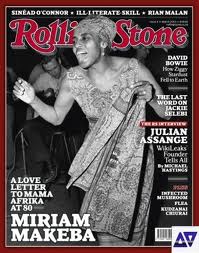The exploitation of a black Zulu man in Apartheid South Africa is not an unbelievable story or a new one. What makes Solomon Linda’s story so different? He could have been rich. His family could have been rich, and he improvised, probably, the most famous and well-known melody in the whole world.
“Mbube”, sung by Solomon Linda and his a cappella group The Evening Birds, was recorded in 1939, in the first recording studio in South Africa, owned by Eric Gallo who formed Gallo Records. Better known as the “Lion Sleeps Tonight”, nobody in that room could have imagined that this melody would go on to be recorded around 160 times, of three different versions, be featured in 13 movies and musicals, 6 commercials and 60 years of airplay. How much of that money did the Linda family see? A measly, $12, 000. What an outrage! What an injustice! Right?
Technically, that is $12 000 that the Linda family, by law, were not entitled to. Solomon Linda sold his song, “Mbube”, and all the rights to the song, to Gallo Records for 10 shillings. When “Mbube” became The Weavers’ “Wimoweh”, Gallo traded the copyright in return for administering the song in places such as South Africa and Rhodesia. Even though legally Solomon Linda was not cheated in any way, it becomes a question of morality. All that happened, because Solomon Linda was black. He died in poverty because he was black. He was exploited and forgotten, because he was black. In hindsight, the Linda family deserve to benefit from the creation of their father, which white American men have been benefitting from since 1950.
Journalist, Rian Malan, made it his business to pursue this issue, to help those white American men remember to whom they owed their careers. In his article, In the Jungle, published in the late 90’s, Malan tells us of his journey into the entanglement of copyrights, covers and publishing organisations, in order to figure out how and why this injustice occurred.
Malan traced the history of the song and discovered how the song got to America, and became “The Lion Sleeps Tonight”. He felt strongly that the Linda family should benefit from their fathers genius, based on the context of the situation, which enabled the stealing of his creativity and the rights to his creation. Malan wrote letters to both George David Weiss, the man who co-mutated “Mbube” into “The Lion Sleeps Tonight”, and to Larry Richmond, president of The Richmond Organisation, that published The Weavers’ version of “Mbube”, “Wimoweh”. In a lengthy letter describing the little, that Linda gained from his artistry and how he was a victim of injustice, Malan sat back hoping that their moral conscience would propel them forward to do something about it.
It did not. However, Pete Seeger, from the Weavers (who was always aware of Solomon Linda’s involvement in the writing of the song) attempted back in 1950, to ensure that the Linda sisters would receive songwriter royalties. While Seeger believed the Linda sisters were receiving these royalties, they say that they did not receive anything other than a few breadcrumbs over the space of a decade. After Seeger received a $12, 000 check for the use of “Wimoweh” in a US commercial, he realised that he had been receiving royalties from the song all along, when he thought his share of “Wimoweh” royalties were diverted into a charitable trust. In realising this, he demanded TRO send the money to the Linda sisters. This sparked a series of events that now ensure the Linda sisters are receiving songwriter royalties for all their fathers creation of the most popular melody to come out of Africa and make its’ way around the world.
CEO of Johnnic Entertainment (parent of Gallo Records) Paul Jenkins announced they would handle the affairs of the Linda sisters, and organised one of the best copyright lawyers, Dr. Owen Dean, to handle their case. What was the outcome?
In February 2006, the parties involved reached a settlement. The Linda sisters would receive royalties for past use of “The Lion Sleeps Tonight” as well as for future uses of the song. Legally, Solomon Linda is now co-composer of “The Lion Sleeps Tonight”, and the song is recognised as derived from “Mbube”. The Linda sisters are now able to sustain themselves economically, and will most likely be able to do so into the future.
It is safe to say that without the investigations of Rian Malan, none of this would have happened. It most certainly is tragic that it even took that long for someone to recognise and make a noise about the fact that the songwriter credits belonged to Solomon Linda. How many other black men were exploited and had their creative efforts stolen from them? Plenty, probably. This is just one case in many. At least it is happy conclusion for the Linda sisters, and the legendary melody is credited to its’ rightful owner, Solomon Linda.




